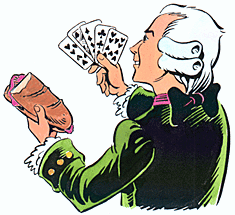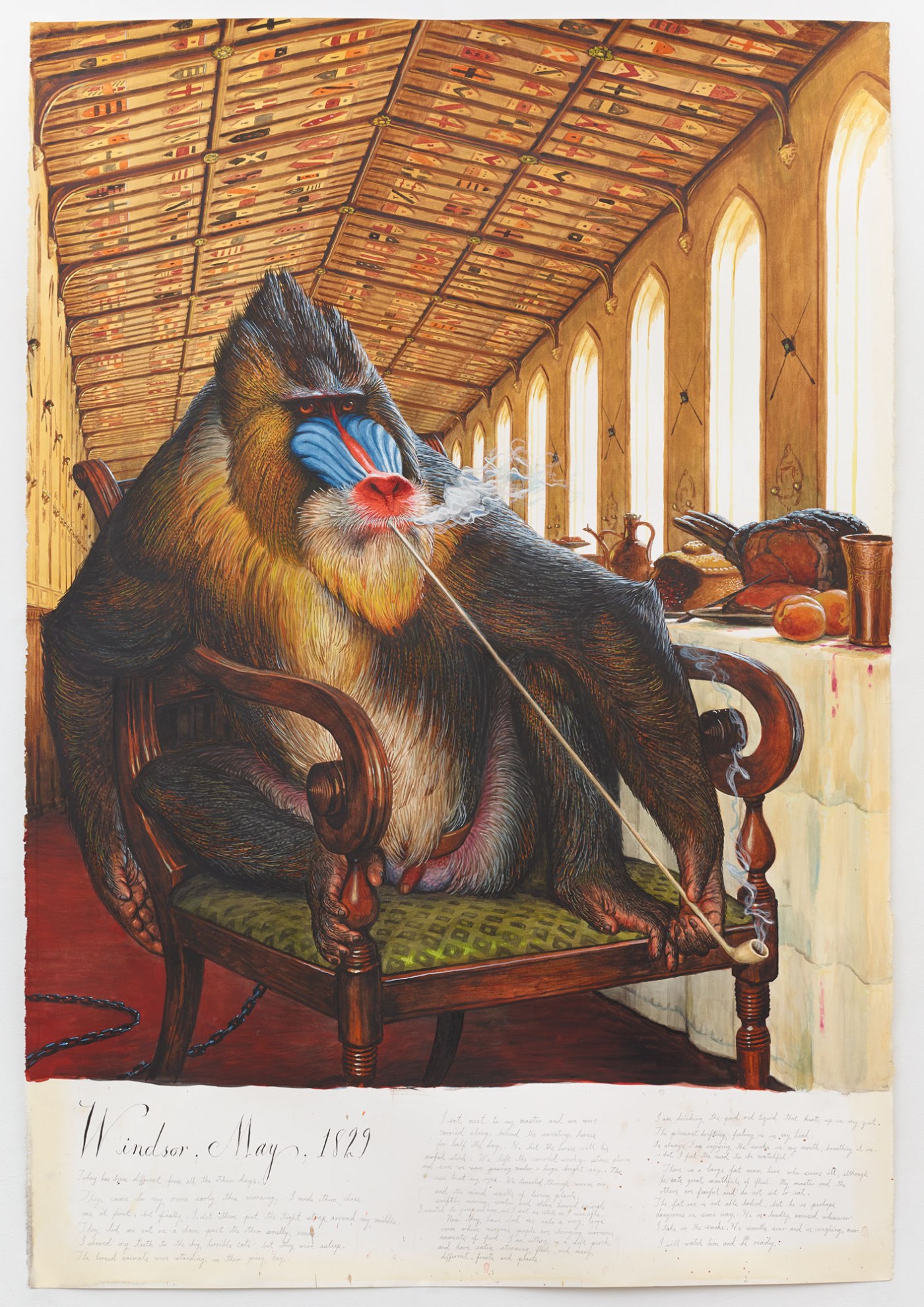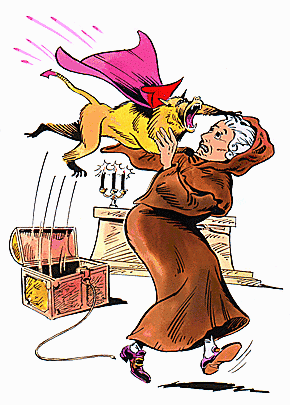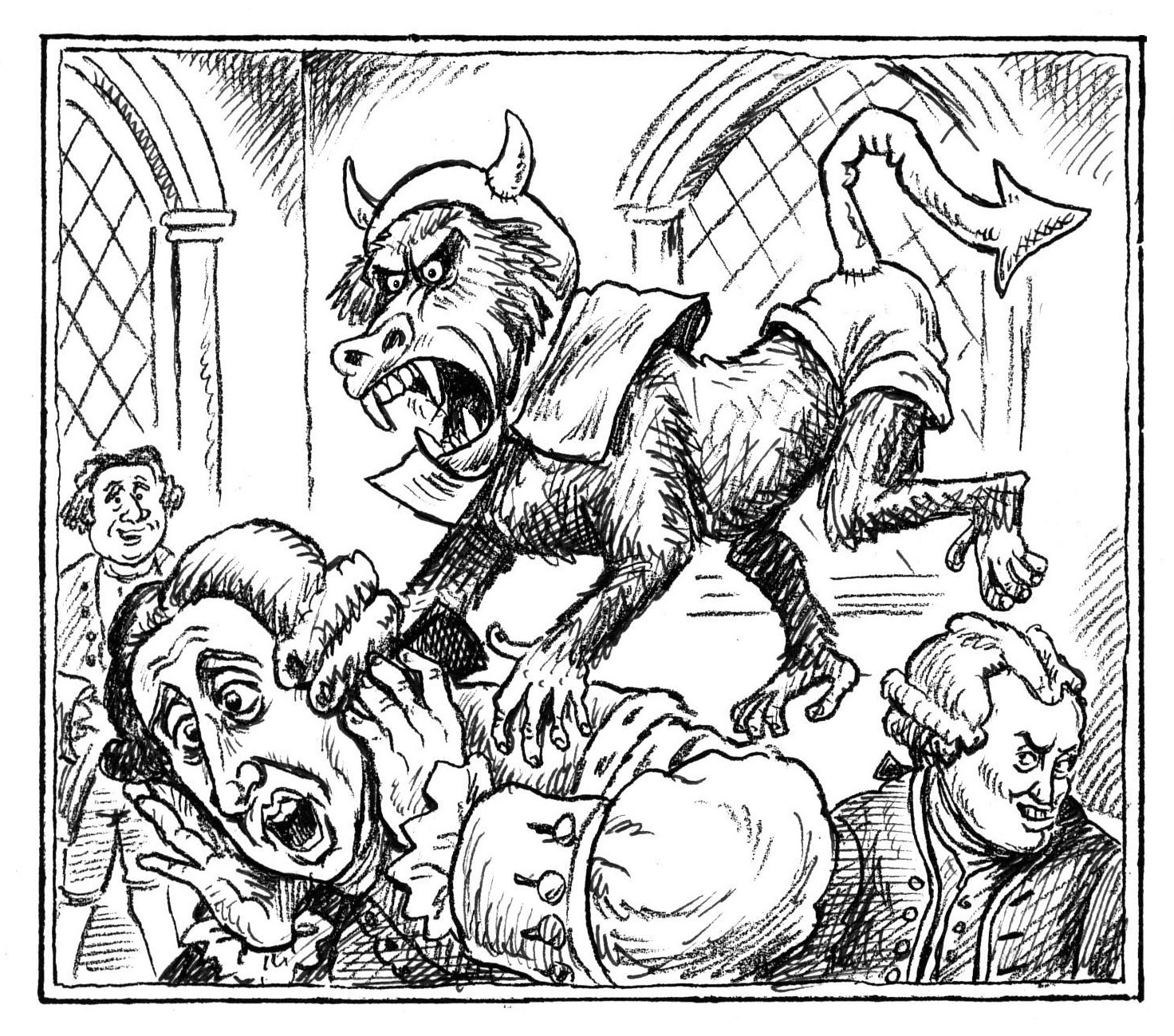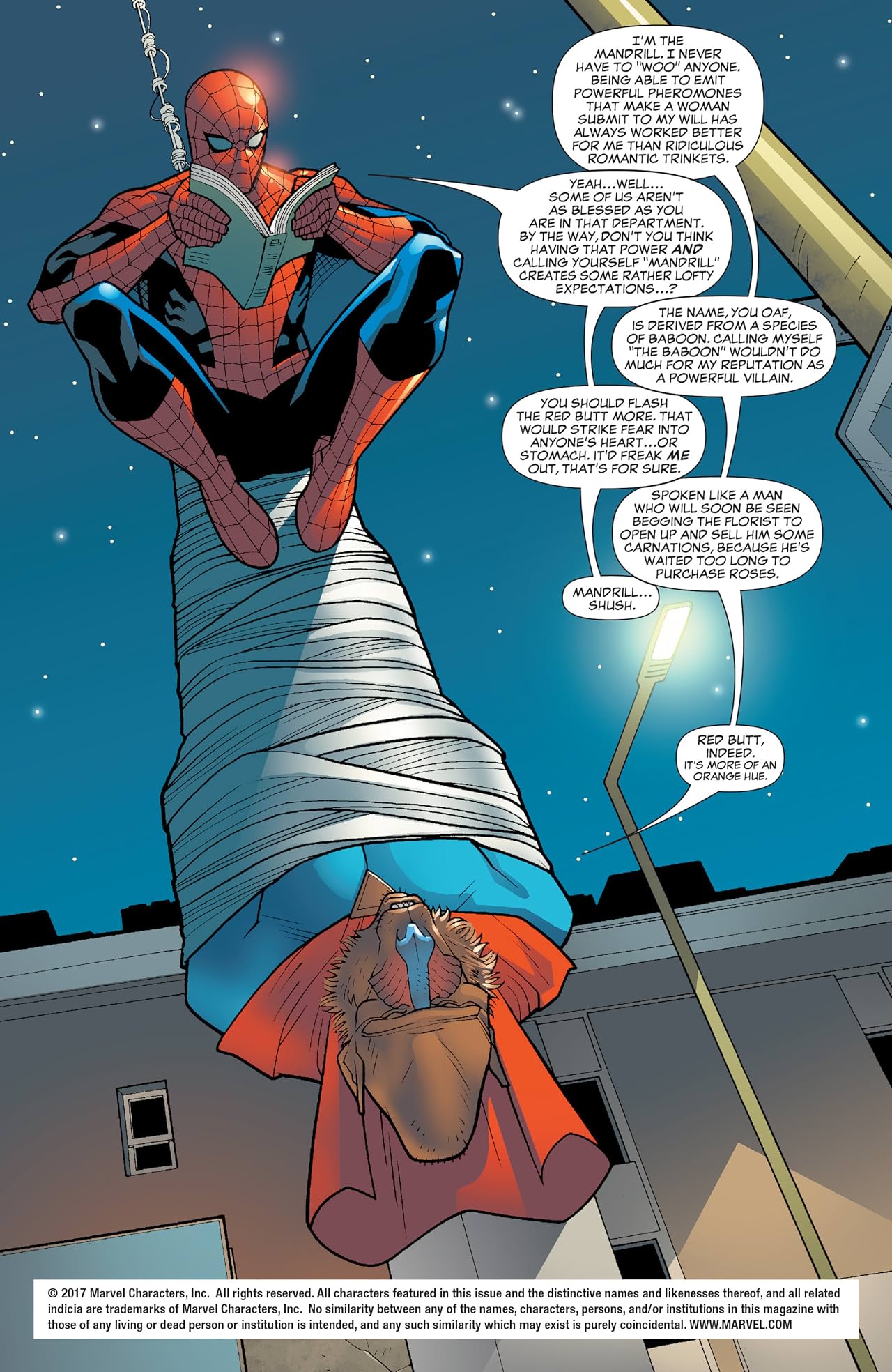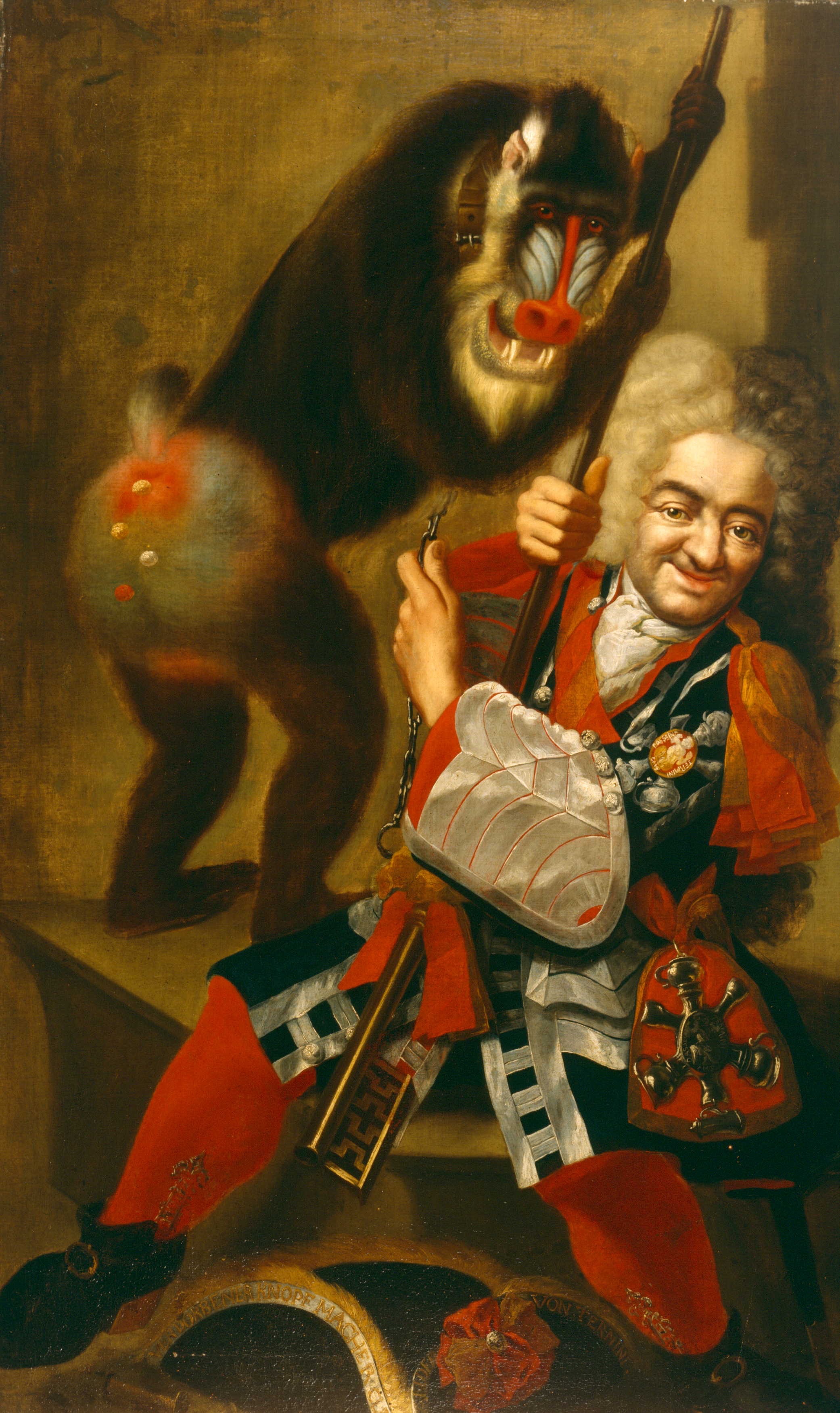http://www.alternatehistory.com/discussion/showthread.php?t=124111&highlight=Earl+Sandwich
[FONT=Georgia,]Where did the word “sandwich” come from?[/FONT]
[FONT=Georgia,]
The
sandwich, which is most popular with world-wide eaters, functions as a noun or a verb and usually prefers to have its name pronounced as
SAND wich. Besides the more obvious occupation of being something edible between two or more slices of bread, metaphorically speaking, it also likes to squeeze in between two other people, places, things, materials, etc.; as, he is willing to
sandwich an appointment in between two other meetings
or her car was
sandwiched between two other cars in the parking lot.
The word
sandwich that we use today was born in London during the very late hours one night in 1762 when an English nobleman, John Montagu, the Fourth Earl of Sandwich (1718-1792), was too busy gambling to stop for a meal even though he was hungry for some food. The legend goes that he ordered a waiter to bring him roast-beef between two slices of bread. The Earl was able to continue his gambling while eating his snack; and from that incident, we have inherited that quick-food product that we now know as the
sandwich. He apparently had the meat put on slices of bread so he wouldn’t get his fingers greasy while he was playing cards. It’s strange that the name of this sex fiend should have gone down in history connected to such an innocent article of diet.
[/FONT]
[FONT=Georgia,]The Earl of Sandwich, the sandwich, and the town of Sandwich [/FONT]
[FONT=Georgia,]The title, Earl of “Sandwich”, comes from Old English (O.E.)
Sandwic, and literally means “sand village”, “Sandy Place”, or “Place on the Sand”. The old English
wic is a loan word from Latin
vicus, “hamlet”, which also gives us the word
vicinity. The first recorded mention of the town was around 640 A.D.
According to Sue Fielder in her
Open Sandwich site (reproduced here with her permission):
Hereditary English titles can be confusing. The family of the Earls of Sandwich has no real connection to the town itself, only the title. Apparently, the First Earl, Edward Montagu, originally intended to take the title of the Earl of Portsmouth—this might have been changed to honor the town of Sandwich, because the fleet he was commanding in 1660 was lying off the coast of Sandwich, before it sailed to bring Charles II back to England.
It is generally thought that neither the town of Sandwich, nor the word “sandwich” as an item of food, has any reference to each other, only with John Montagu, who happened to have the title. A sandwich could just as easily have been called a “portsmouth” if the First Earl, Edward Montagu, had not changed his mind.
Imagine ordering a “hamburger
portsmouth, please” or a “bacon and egg
portsmouth”. Well, why not? [J.R.]
[/FONT]
[FONT=Georgia,]The Fourth Earl of Sandwich was considered one of the most immoral men of his time.[/FONT]
[FONT=Georgia,]John Montagu is said to have been immoral in both his private and public life, and gambling was just one of his lesser vices. He was the First Lord of the Admiralty, incompetent and very corrupt. In fact, it is very likely that he indirectly contributed to the success of the American Revolution because of his malfeasance as the chief admiral of the English navy. According to Jane Polley, “Sandwich managed to reduce the British Navy to a state of total confusion around the time that the American Revolution started—a contribution at least as significant as the munchable lunch.”
The Earl was a member of a group of Satan Worshippers called “The Friars of St. Francis of Wycombe”, also known as “The Hell Fire Club”. He boasted that he specialized in seducing virgins because he enjoyed “the corruption of innocence, for its own sake.” Sandwich was the executive officer of the Club and was described as being “as mischievous as a monkey and as lecherous as a goat.” He was also called “the most universally disliked man in England.” According to Daniel Mannix in his
The Hell Fire Club, “In addition to being anti-religious, Sandwich was violently anti-democratic. He despised the general public and opposed any public figure who tried to get a better break for the common man. Because of his friendship with the King and his control of the English Navy, Sandwich was one of the most important men of the time and exerted a profound influence on the destiny of the British Empire.”
[/FONT]
[FONT=Georgia,]John Wilkes was responsible for scaring John Montagu almost to death.[/FONT]
[FONT=Georgia,]The Hell Fire Club, founded by Sir Francis Dashwood was devoted to drinking, pornography in Latin verse, whoring, black masses, and satanic rituals. Most of the members were no doubt more interested in the drinking and the whoring but they went along with the rituals with at least one exception
For quite some time, John Wilkes, one of the members of the Club, apparently was growing irritated by the elaborate and boring ceremony of the Black Mass of The Hell Fire Club. Wilkes was described as “brilliant, amusing, an atheist, and utterly immoral” which were all the traits that qualified him to be a member of The Hell Fire Club.
Wilkes didn’t enjoy sitting in a robe watching the other “brothers” screaming blasphemies and daring God to prove His existence to them. Wilkes decided to give his fellow members a Black Mass that they would never forget. He had a baboon dressed in a devil’s suit and put it into a large chest normally holding utensils and ornaments used for the devil-worshipping ceremonies and which was located near the altar. The chest was fastened with a spring lock and Wilkes tied a “cord” to the lock and led it under the carpet to his seat. He cut a hole in the carpet so he could get a hold of the cord any time he wanted it.
With the small rope attached to the cover of the chest with which he could secretly release the beast during the “mass”, Wilkes waited until several of the “monks” were in front of the altar, imploring their master, the devil, to come among them and receive their adoration in person. He kneeled with the others in mock reverence and secretly pulled the cord, releasing the baboon which jumped on top of the altar in anger and fear, chattering at those it must have considered to be his tormentors.
[/FONT]
[FONT=Georgia,]The image of Satan terrified the mocking “worshippers”.[/FONT]
[FONT=Georgia,]
The brotherhood of Satanic worshippers stared at the gibbering monster with devil “horns” and “tail” and with horrified yells of “The devil! The devil!” they ran around trying to escape. The semi-drunken men tried to run, but before they could get away, the baboon made another flying leap and landed on the Earl of Sandwich’s shoulder. Mad with fright, the Earl tried to tear the animal loose, but the baboon kept clinging to him, chattering with rage before it finally fled out of an open window.
Before the “devil” left through the window and while it was still clinging to Sandwich’s shoulder, the Earl was running around the room screaming, “Spare me, gracious devil! You know I never committed a thousandth part of the vices of which I boasted. Take somebody else, they’re all worse than I am. I never knew that you’d really come, or I’d never have invoked thee!”
Sandwich spent the rest of the evening trying to regain his reputation as a hardened-impious lecher by wild speeches full of the most vile blasphemies. The Earl’s outburst when the baboon leaped on his shoulder had revealed him as a fundamentally deeply superstitious man. In spite of his cynical manner, he had a profound belief in the forces of evil and an all-abiding terror of eternal punishment for his sins.
Wilkes also made another “mortal enemy” of Samuel Johnson, the compiler of the famous
A Dictionary of the English Language, 1755, by writing a comic review of Johnson’s “immortal dictionary.” Wilkes made fun of Johnson’s remarks on grammar in which he said: “The letter ‘h’ seldom, perhaps never, begins any but the first syllable” of a word. In his review, Wilkes wrote that “The author of this observation must be a man of quick appre-
hension and of a most compre-
hensive genius.” Such comments went on for several paragraphs and Johnson apparently never forgave Wilkes.
By the way, Benjamin Franklin was an honored guest of the Club during his visits to England. His explanation was that attending the meetings was an excellent occasion for meeting the luminaries of the British government. Although his explanation may have been valid, it was little things like this that led many to believe, no doubt unjustly, that Franklin was a dirty old man.
John Wilkes was expelled from The Hell Fire Club for “insulting the dignity of the Club.” This was just the beginning of the efforts by the Earl of Sandwich to get vengeance on Wilkes for the humiliation and embarrassment the Earl suffered. [/FONT]
[FONT=Georgia,]One famous confrontation between John Montagu (a.k.a., The Earl of Sandwich) and John Wilkes went like this:
Sandwich: “Sir, I do not know whether you will die on the gallows or of the pox.” Wilkes responded with, “That will depend, my lord, on whether I embrace your principles or your mistress.” [/FONT]
[FONT=Georgia,]Sandwich died in 1792 and it was suggested that his epitaph should have been, “Seldom has any man held so many offices and accomplished so little.”
Sir Francis Dashwood’s group, the Monks of Medmenham (AKA The Hell Fire Club), despite claims of satanic activity associated with their gatherings, the meetings of Dashwood, Lord Sandwich, John Wilkes and their inner group of thirteen usually consisted of, as Wilkes wrote:
“A set of worthy, jolly fellows, happy disciples of Venus and Bacchus, got together to celebrate women in wine and to give more zest to the festive meeting, they plucked every luxurious idea from the ancients and enriched their own modern pleasures with the tradition of ancient luxury.”
Although the descendants of the sandwich may have rescued the Earl’s name from infamy, it is unlikely that he was the only one, or even the first one, to eat in this fashion. The idea is probably as time honored as bread and leftovers. French peasants customarily set off for the fields with cold meat wedged between generous slabs of black bread. Even the Romans are known to have nibbled layers of meat and bread called
offula. [/FONT]
[FONT=Georgia,]Now for an update with the 11th Earl of Sandwich, in the year 2003[/FONT]
[FONT=Georgia,]In the July 22, 2003, issue of the
International Herald Tribune, there was an article titled: “Making bread from a famous name” by Sarah Lyall in which we learn about the 11th Earl of Sandwich and his son, Orlando Montagu, setting up a sandwich-selling business known as, “The Earl of Sandwich.”
[/FONT]
- [FONT=Georgia,]One Sandwich Earl or another has been in Parliament continuously since the 1660’s.
- The most famous Earl of Sandwich was the fourth one.
- He was the First Lord of the Admiralty and he financed the expedition of Captain Cook, who named the Sandwich Islands after him.
- Later, they were named Hawaii.
- Since the fourth Earl’s all-night gambling session in which he would not stop to eat and ordered some meat between two pieces of bread, all of the subsequent Earls of Sandwiches have been linked with sandwiches.
- In fact, the grandfather of the 11th Earl was referred to as “Lord Snack.”
- In 2001, The Earl of Sandwich (the company) began delivering upscale sandwiches, made with fresh ingredients from small British producers, to businesses across London.
- The company also sells sandwiches to Waitrose supermarkets; the packages bear the family crest.
- In the autumn of 2003, The Earl of Sandwich company is preparing to embark on its biggest venture yet, when it opens its first cafe, at Disney World in Florida.
- When he shops at Waitrose supermarkets, the 11th Earl enjoys buying Earl of Sandwich sandwiches, each of which bears his family signature.
- It would appear that this “upper crust” family is now striving to make “bread” with its famous name.[/FONT]
[FONT=Georgia,]
[/FONT] [FONT=Georgia,]
Sources of Information [/FONT]
[FONT=Georgia,]Fielder, Sue.
Open Sandwich; Sandwich Kent England, UK.
Freeman, Morton S.
The Story Behind the Word. Philadelphia: ISI Press, 1985, pp. 235-236.
Hendrickson, Robert.
Encyclopedia of Word and Phrase Origins. New York: Facts on File Publications, 1987, p. 465.
Lyle, Sarah. “Making bread from a famous name,”
International Herald Tribune. July 22, 2003; p. 2.
Mannix, Daniel P.
The Hell Fire Club. New York: Ballantine Books, Inc., 1959, pp. 40, 64-65.
Polley, Jane, ed.
Stories Behind Everyday Things. Pleasantville, New York: The Reader’s Digest Association, Inc., 1980, p. 293.
Webster’s Word Histories. Springfield, Massachusetts: Merriam-Webster, Inc., 1989. [/FONT]





